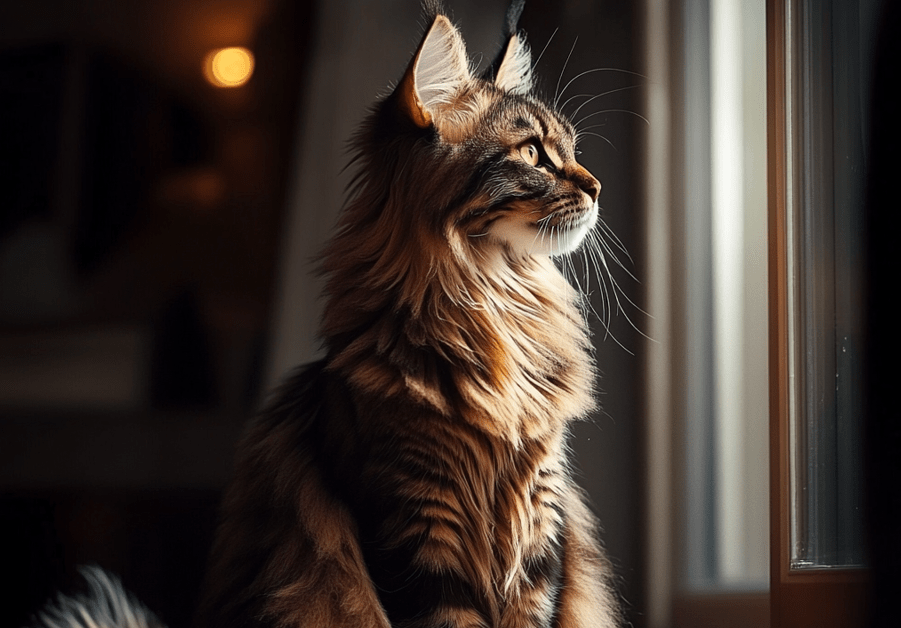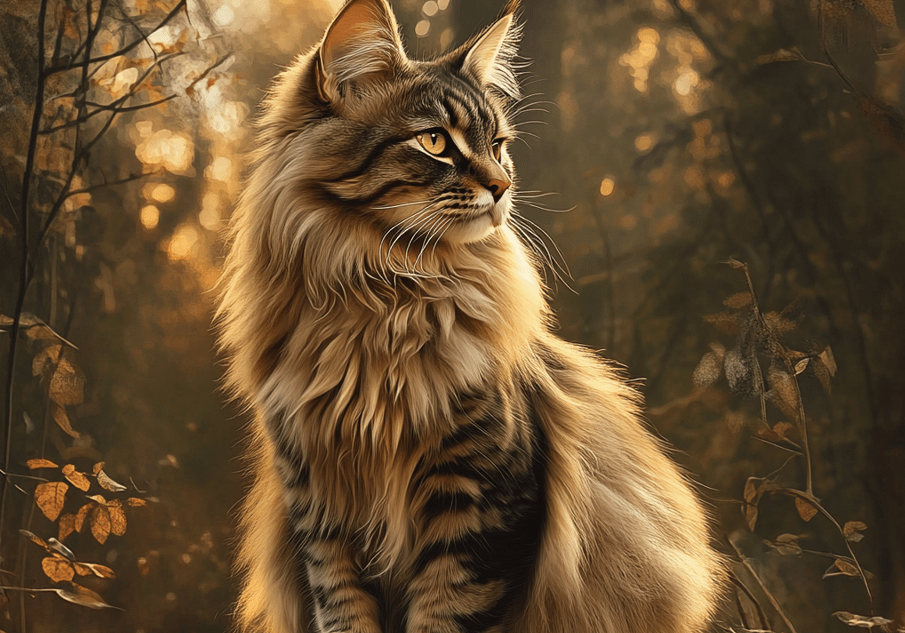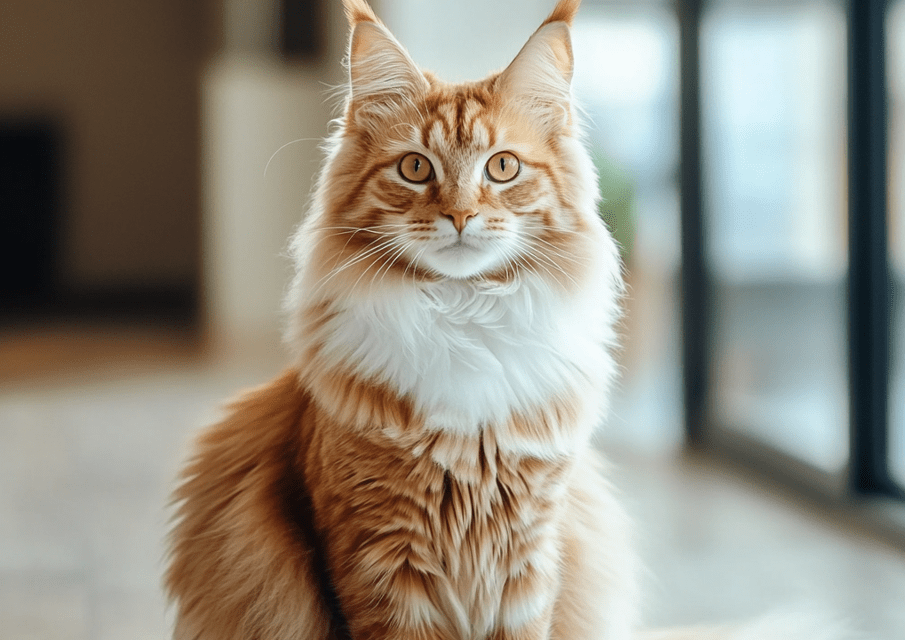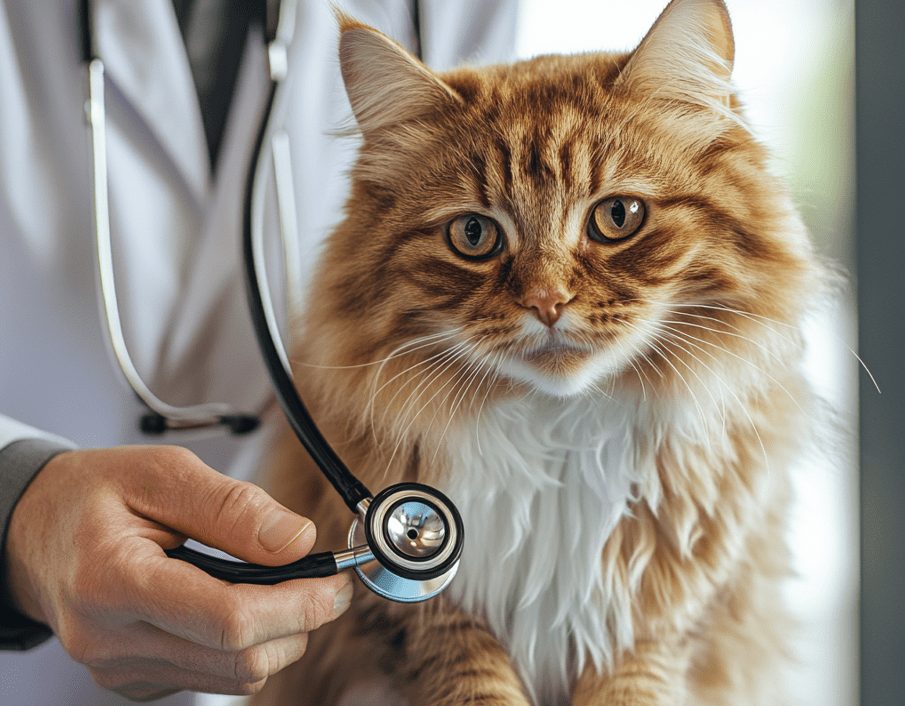
Cat lovers not only love Maine Coons because of their beauty but also for their adorable temperament. Their thick, beautiful coats and large, majestic stature make them hard to ignore. They are known for their friendly and affectionate personalities and tendency to bond closely with their families. They are playful and loving, making them great pets. They’re an absolute delight in any home.
Understanding Maine Coon health problems allows you to recognize and deal with common issues to ensure your cat remains happy and healthy for many years. While Maine Coons are usually healthy cats and known to be hardy, they are susceptible to some health conditions. As with many purebreds, they may be genetically prone to certain specific health issues. Knowing about these dangers can help you keep an eye on your feline and give them the best life possible. This information may help you to help your Maine Coon be happy, healthy and safe in their life.
11 Common Health Problems in Maine Coon Cats
Regular check-ups by a veterinarian, a healthy diet, and plenty of exercise will help ensure your cat’s health. However, this breed is susceptible to certain medical conditions. Some of the more common diseases include hypertrophic cardiomyopathy, spinal muscular atrophy, hip dysplasia, stomatitis, renal failure, obesity, polycystic kidney disease, and patellar luxation.
Read on to discover more details about these health issues, their symptoms, and how you can protect your Maine Coon’s health.
1.Hypertrophic Cardiomyopathy
Hypertrophic cardiomyopathy is an inherited heart disease. It causes the heart muscle to grow abnormally thick, which can interfere with the heart’s ability to function. This disease can be hard to identify early on since cats are naturally good at hiding signs of illness. But there are certain symptoms to look out for, including fast or labored breathing, loss of appetite and excessive lethargy or weakness. Because these symptoms may not appear until the disease has progressed. It’s critical to get veterinary care as soon as you notice any changes in your cat’s behavior or health. An early diagnosis and treatment can aid in managing the condition and improving your cat’s quality of life.
2.Spinal Muscular Atrophy
One of the most serious health issues in Maine Coon cats is a genetic disease called Spinal Muscular Atrophy (SMA) which is caused by a gradual degenerative process affecting the motor neurons. This degeneration affects mainly the lower spinal cord, causing atrophy of the hind limb muscle. This can cause to change their posture slowly and significantly over time.
The good news is that SMA is not a life-threatening disease, and cats with SMA can still enjoy a long and happy life. Symptoms usually develop when kittens are about three to four months of age.
SMA is a recessive trait, meaning both parents must be carriers in order for the child to be affected. Genetic testing is also available, so breeders should be screening all breeding cats to avoid transmitting this condition.
3.Hip Dysplasia
Hip dysplasia is a condition found primarily in dogs, but it can also occur in some cats, particularly Maine Coons. This occurs as a result of improper hip joint formation, the latter of which can cause arthritis as the cat matures.
Hip dysplasia is slow to show up with this breed as kittens, making it difficult to detect in young Maine Coons. But as they get older, you may notice stiffness, leg or hip movement issues while walking or less movement in the hips. If you see these changes, then it is better to visit a veterinarian with your cat. The only way for a vet to determine whether your Maine Coon suffers from hip dysplasia is through X-ray, and what treatment options there are.
4.Stomatitis
Stomatitis is a dental disease that can affect many cat breeds, but it is especially common in Maine Coons. This occurs due to untreated gingivitis (gum disease). Stomatitis is inflammation of the soft tissues in the mouth of the cat that is provoked by an immune response to plaque and bacteria. This continual inflammation can cause painful swelling and the development of lesions.
Good oral hygiene for your cat is important in preventing stomatitis. Look out for signs, including bad breath, loss of appetite and unexplained weight loss. This will help to ensure your Maine Coon’s oral health, but it is highly recommended that you consult a veterinarian about effective dental care practices.
5.Renal Failure
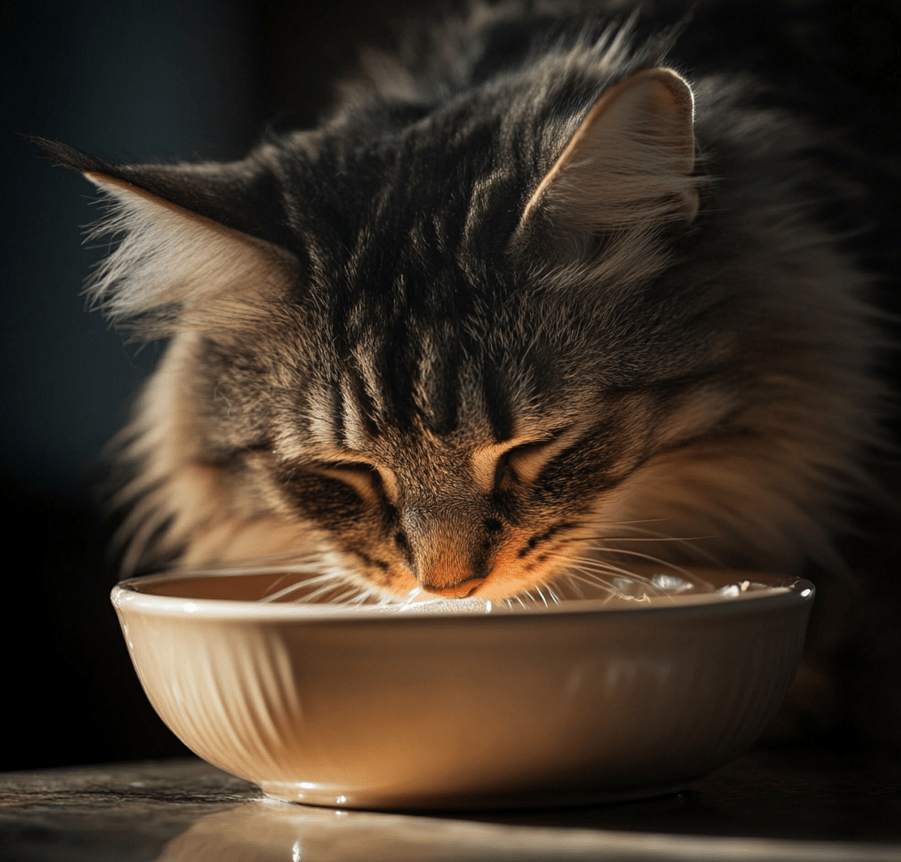
The general definition of renal failure is when the kidneys become unable to carry out their normal functions. The kidneys are responsible for filtering waste products from the blood and maintaining proper levels of hydration, so any kidney problem is a serious health concern. Older cats suffer from renal failure most often, but genetic factors may even put younger cats at risk.
Certain breeds, such as Maine Coons, are particularly prone to developing kidney cysts. These cysts are not associated with the gene responsible for Polycystic Kidney Disease (PKD), which is seen in Persian cats and some other breeds.
Kidney issues can occur even in kittens; usually the signs are sudden. The best preventative way to protect your furry Maine Coon is through genetic screening to look for any risk factors.
6.Obesity
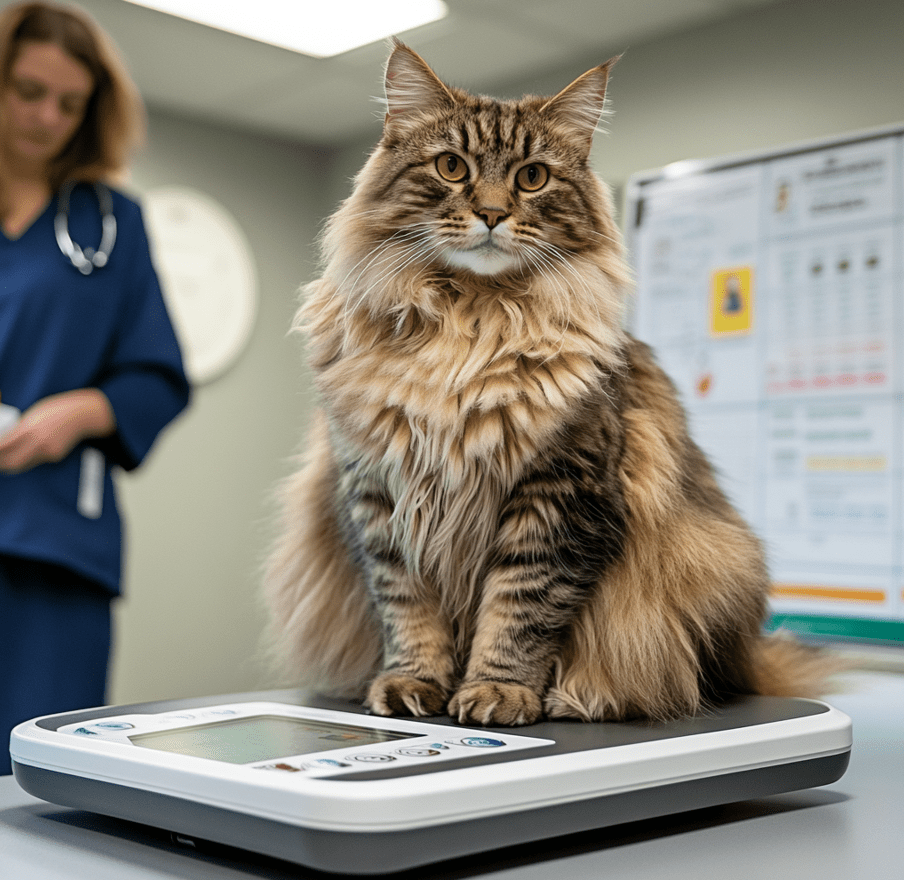
If you may not be aware, weight is a problem that a lot of cats are struggling with, and being a large breed, Maine Coons specifically have a risk of developing weight-related problems. Although the symptoms of obesity in Maine Coons can be more visible than symptoms of other illnesses, it can still be tricky to know when your cat is at a healthy weight or not. It is highly advisable to consult your vet to determine the right weight and proper food to feed your Maine coon. Exercise is also a very important factor to keep off the weight.
Obese cats can also be susceptible to serious medical problems, such as diabetes and fatty liver disease. To ensure your cat has a good long term life you must properly manage weight.
7.Patellar Luxation
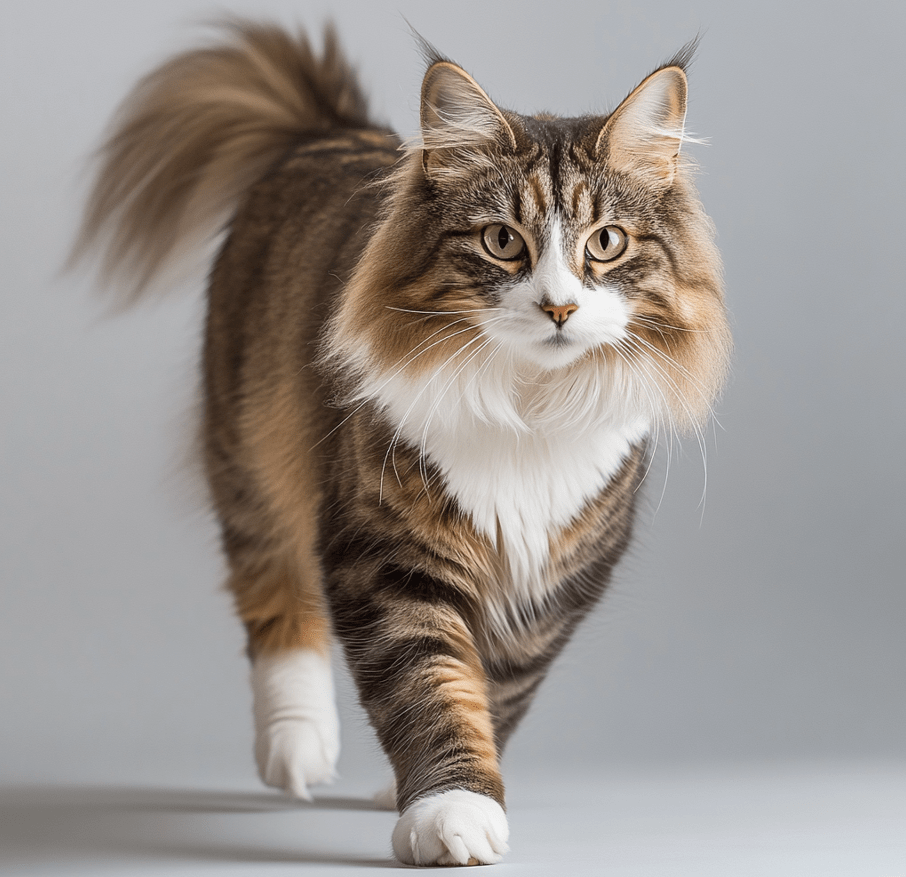
Cats can do moves that are impossible for humans because their knee joints are highly flexible. The kneecap (patella) may not lie in its normal position, a condition called patellar luxation. In layman’s terms, this is a kneecap dislocation. Your Maine Coon may not appear sick at first, but signs of arthritis include limping, climbing difficulties, or an odd skipping gait as they walk. A confirmation of a patellar luxation diagnosis can only be done by a complete medical examination by a veterinarian.
8.Polycystic Kidney Disease (PKD)
Polycystic Kidney Disease (PKD) is inherited types of kidney disease in which a cat will have multiple fluid-filled cysts develop on its kidneys. These cysts from birth and progressively grow larger with time, slowly compromising kidney function. The disease can progress, resulting in severe damage to the kidney, and ultimately kidney failure. Although PKD is usually associated with Persian cats and other breeds closely related to them, Maine Coons are much less likely to be affected by the problem.
While PKD is not common in Maine Coons, routine check-ups with your veterinarian are important to monitor kidney health. If any kidney-related issues are detected early on, it can help manage the condition well, and improve the kitty’s quality of life. Seek a veterinarian as soon as you have determined that something is wrong, as prevention is always the most effective way to care for your cat.
9.Periodontal Disease
An active approach to your cat’s dental health is very important in preventing gum disease, or, as it is more properly called, periodontal disease. This process is known as gum disease or periodontal disease, and it has three stages: halitosis (bad breath), gingivitis (gum inflammation) and periodontitis (advanced gum disease). If not treated, it can cause serious health problems, including heart valve and kidney damage. Fortunately, routine dental care, like brushing your cat’s teeth, can successfully prevent this condition and help maintain your feline’s oral care.
10.Chronic Gingivitis
Gingivitis is inflammation of the gums and is the early stage of periodontal disease. While all cats are at risk for gingivitis, Maine Coon cats are especially prone to feline juvenile gingivitis beginning as early as the age of 7 months. The single most important way to minimize the risk of developing oral health problems is to brush your cat’s teeth daily and to have regular visits to the veterinary surgeon.
11.Hairballs
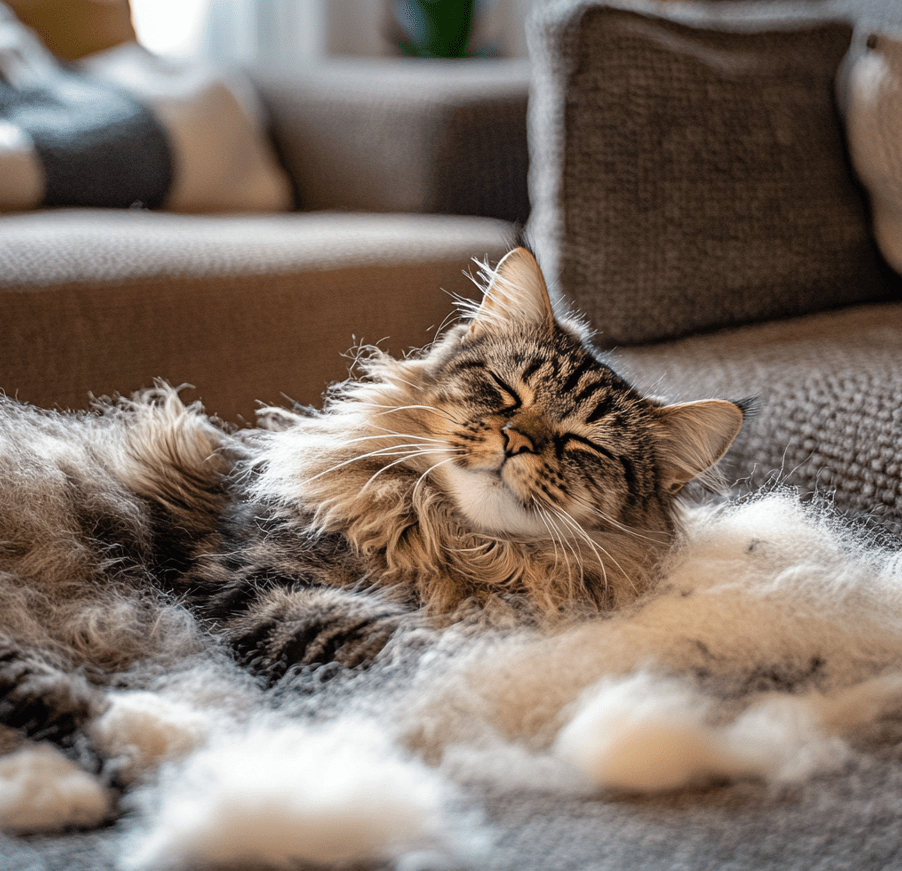
All cats except for hairless breeds like the Sphynx get hairballs. But long-haired breeds (like Maine Coon cats) are more prone to winding up with them, due to their dense hair. They are known to swallow loose hair as they groom themselves, which can accumulate in the stomach and create hairballs. Occasional hairballs are normal, though frequent hairballs can lead to discomfort or digestive issues. Regular grooming is the most effective preventative: Brushing your cat’s fur a few times a week helps keep loose hair out of their stomachs. An appropriate amount of fiber in the diet, along with adequate water intake, contributes to the proper functioning of digestion processes and, consequently, prevents the formation of hairballs.
Conclusion
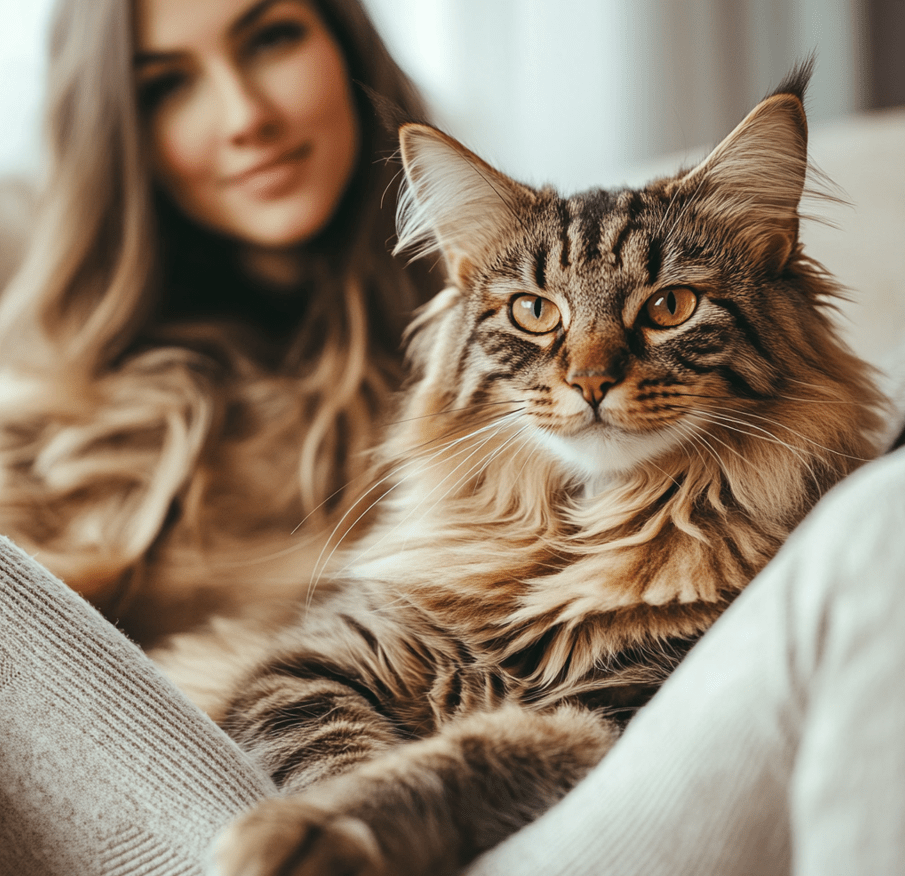
Long healthy life of your Maine Coon cat starts with choosing the healthy kitten. Please keep in mind that if you have any questions, we are always happy to help here and are just an email away. Regular health check-ups are important for early detection of problems before they become serious. If you have reason to believe your cat is in pain or sick, always contact your veterinarian as soon as possible.

